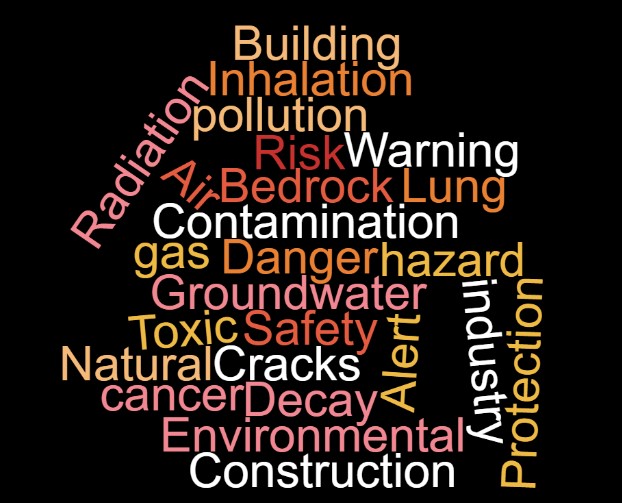Radon is a serious health risk facing tens of thousands of Americans and is associated with words like:
That’s why the U.S Environmental Protection Agency (EPA) has designated January as National Radon Action Month.
What in the world is Radon? Radon is a tasteless, odorless, colorless, radioactive gas that occurs naturally in soil and rock. It can enter homes, schools, buildings through openings in the foundation floor or walls (sump openings; crawlspaces; floor/wall joints; cracks; space around plumbing, wiring, or duct work; etc.). Any home could have a radon problem whether old or new; rural or urban; energy efficient or drafty; or built over a basement, over a crawlspace, or built slab-on-grade.
How is Radon harmful? High levels of radon can cause lung cancer. Radon is the second leading cause of lung cancer (smoking is first) but is the number one cause of lung cancer among non-smokers. According to the EPA, Radon is responsible for approximately 21,000 lung cancer deaths each year.
So, what should you do? Have your home tested. It’s the only way to know for sure if your home has high levels of radon. Ultimately, testing for radon and addressing radon risk could save lives, double the lives over five years to be exact.
As a part of National Radon Action Month, District Health Department #10 is providing FREE Home radon test kits in the month of January. Test kits are also available all year long for $10 each at DHD#10. You can also hire a qualified radon service provider to do the testing for you. For questions on what to do if you have high levels of radon in your home, call us at 888-217-3904.
Quick Links:
DHD- Healthy Homes
State of Michigan- Order a Radon Test Kit
State of Michigan- Indoor Radon Program
EPA – Radon


